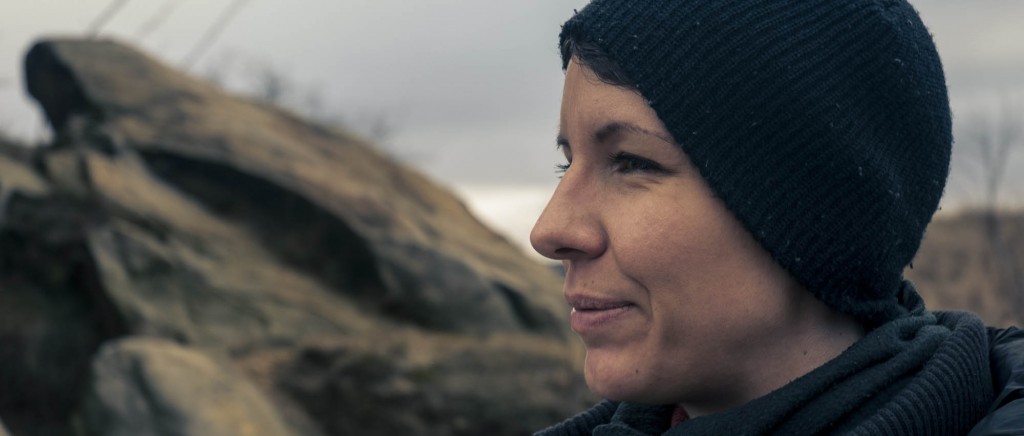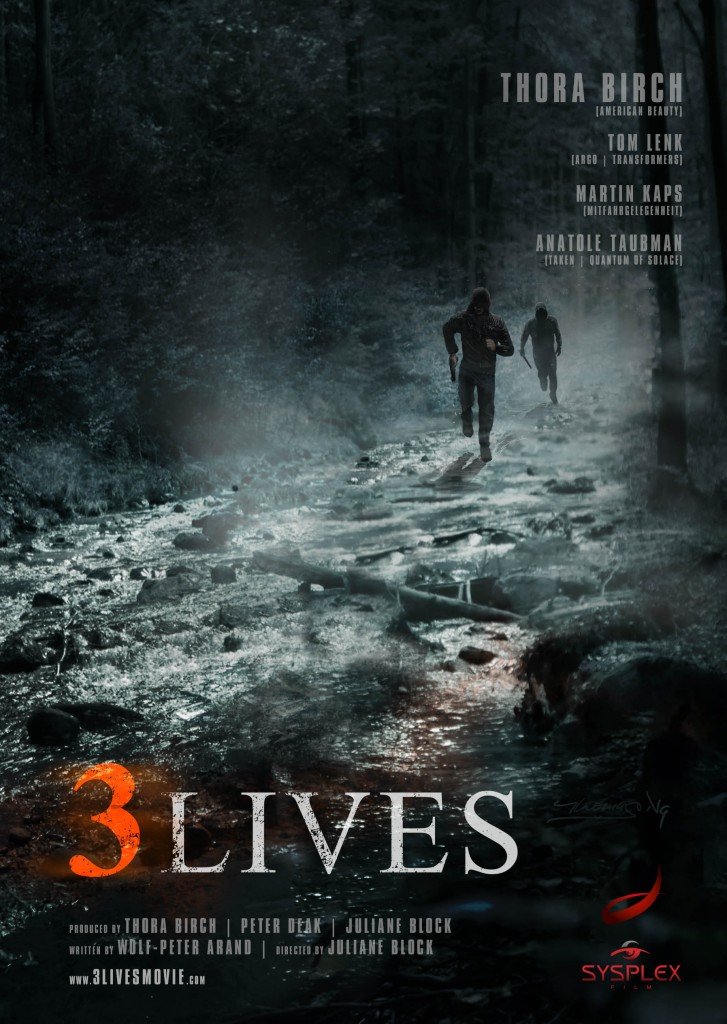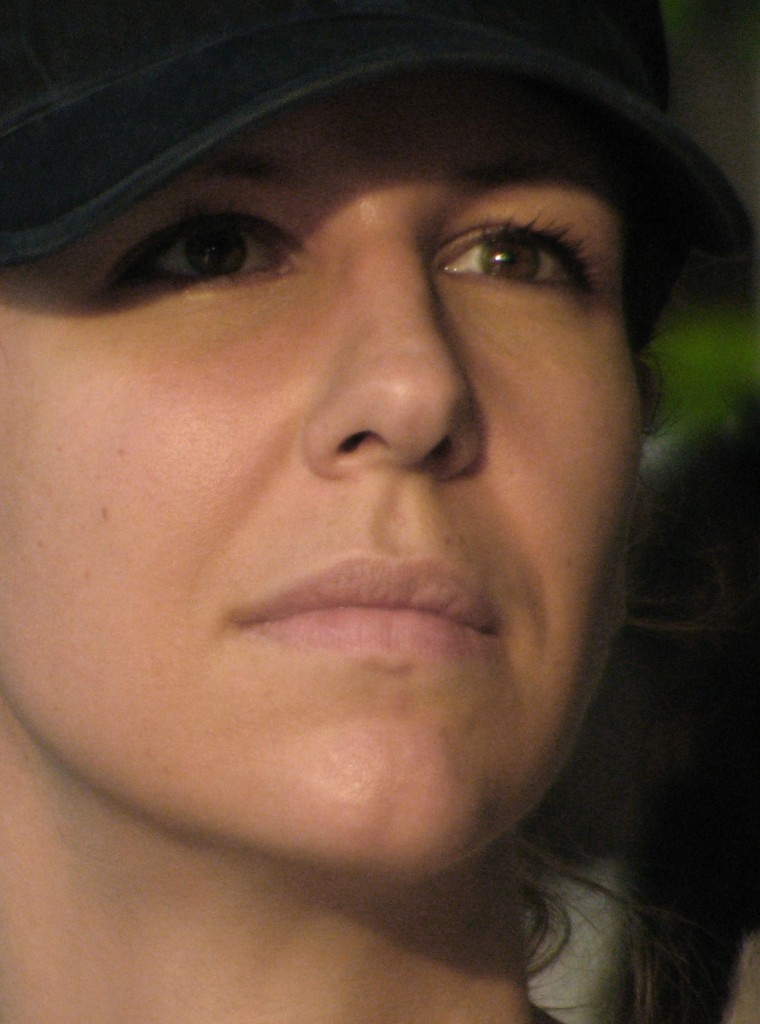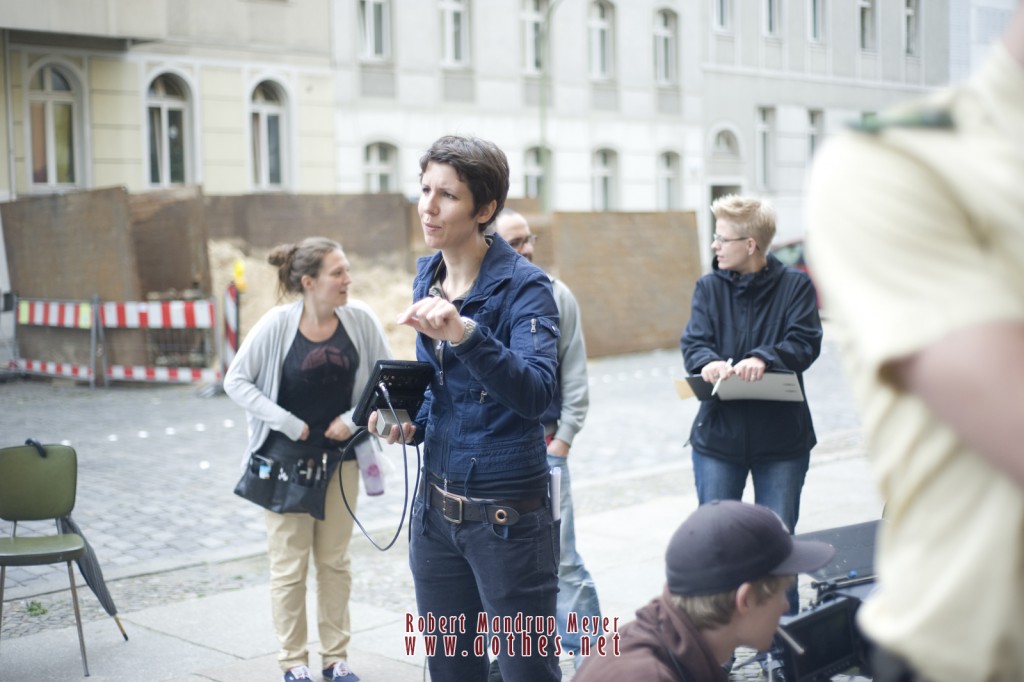The Featured Filmmaker Series gives you the chance to get to know CollabFeature filmmakers through a series of interviews that give an inside peek into the minds and lives of our collaborators.
 Juliane Block is a Berlin-based director whose achievements include 2 feature films, more than 10 short films, music videos, commercials and travel documentaries. She has given lectures on different filmmaking subjects in various countries. Her work has been screened at festivals around the world and she participated in the Berlinale Talent Campus as film director in 2008. Her crowdfunding campaign ‘The Inner District’ won the Google sponsored Indiegogo competition ‘Gründergarage’ in 2012. Her feature screenplay ‘Foster’ was selected as one of the 25 finalists of the Screenplay Replay Contest in 2013.
Juliane Block is a Berlin-based director whose achievements include 2 feature films, more than 10 short films, music videos, commercials and travel documentaries. She has given lectures on different filmmaking subjects in various countries. Her work has been screened at festivals around the world and she participated in the Berlinale Talent Campus as film director in 2008. Her crowdfunding campaign ‘The Inner District’ won the Google sponsored Indiegogo competition ‘Gründergarage’ in 2012. Her feature screenplay ‘Foster’ was selected as one of the 25 finalists of the Screenplay Replay Contest in 2013.
1) Your background as a globe-trotting filmmaker makes you an ideal candidate as a world cinema voice like Wim Wenders. How has living and working in both Asia and Europe manifested in your works? Which of your films best illustrate "transnational culture", i.e. the convergence of East and West elements?
 The biggest difference, I believe, distinguishing me from a German filmmaker who graduated through the common system (doing German film school and then moving on to government funded features or television) is the fact that those public funding doors are pretty hard for me to open. As a result however I am free in the choice of my subjects, and can pursue topics usually not done by German filmmakers: genre films and English language content for an international audience.
The biggest difference, I believe, distinguishing me from a German filmmaker who graduated through the common system (doing German film school and then moving on to government funded features or television) is the fact that those public funding doors are pretty hard for me to open. As a result however I am free in the choice of my subjects, and can pursue topics usually not done by German filmmakers: genre films and English language content for an international audience.
My work as a result has become more globalized through the influences of the different countries, best of all reflected in my last feature film "Kinks" which portrays the differences between the East and the West through two twin sisters - one of them looking white, the other one Indian.
2) You've been working in various genres but judging from your short-form filmography and your feature films in development, you appear to be geared towards action/crime, horror/thriller or science fiction. Can you tell us more about these projects and what appeals to you about genre cinema? Any thoughts about its commercial value in independent circles?
When I first got in touch with filmmaking it was through doing Zombie make-up on a home-made Zombie flick in 1999. I was always drawn to monsters or genre creatures. I devoured Sci-Fi and Fantasy books when I was a kid and even now I rather watch an Action blockbuster (if the reason for watching is mere time passing) than an Indie movie with a deep rooted theme and story.
Having said that the best films for me are the ones who have morally valid and solid underlying themes while telling an enticing story - then mixing it with pure entertainment. That's what pretty much all my future projects are about:
 3 LIVES - a psychological thriller which deals with the topic of how people deal with their past - packaged in a survival thriller in the woods. FOSTER is an action Sci-Fi film about a young man who gets drawn into the organized crime circles in Hong Kong of the future, but ultimately tells the story of a man who grows up and forgives his parents.
3 LIVES - a psychological thriller which deals with the topic of how people deal with their past - packaged in a survival thriller in the woods. FOSTER is an action Sci-Fi film about a young man who gets drawn into the organized crime circles in Hong Kong of the future, but ultimately tells the story of a man who grows up and forgives his parents.
Having shopped around my projects at the big film markets during the last year (AFM, EFM and Cannes) I can say that genre films are definitely a much easier sell internationally then drama or art-house.
3) As part of CollabFeature, what do you think sets you apart from the rest of the filmmakers on the roster? On the flip side, what do you have in common with them?
All of the filmmakers involved in CollabFeature combines a driving motivation to collaborate creatively, to get inspired by different cultures and create something unique. I am no different. If anything sets me apart from the rest, it might be the persistence to see it through to the end. With so many different voices the process of actually finishing something can be grueling at times, but luckily CollabFeature managed to gather a bunch of producers and directors who even stay active after years of involvement.
4) Over the years, short films have increased in accessibility thanks to a surge in mobile and Internet technology. Some people however opine that the advent in mobile technology could potentially result in a decrease in film quality and that over time films could lose their cinematic quality. As someone who has worked on a number of shorts, what is your opinion on this?
 If you judge the quality of film in general by looking at all content produced and then rate it on average, maybe the quality of film did decline. But the amount of little indie gems to discover did increase as well by the increase of accessibility to filmmaking as such.
If you judge the quality of film in general by looking at all content produced and then rate it on average, maybe the quality of film did decline. But the amount of little indie gems to discover did increase as well by the increase of accessibility to filmmaking as such.
It is harder to find them in the massive amount of content available, true, and creates an environment of competitiveness - who markets his or her film best (not necessarily which film is the best.) But ultimately that's no change to earlier times, in which not the best filmmakers necessarily became the prominent directors of their time, but the ones who managed to beat all the odds in their way (being it the money you need to pay for film school e.g.)
The obstacles might have changed, but the opportunity to shine is there - today as it was decades ago.
5) Given the general decrease in attention span over the years, do you think short films are the way forward? Is it like films, but bite-sized and easily digestible?
 The thrive of cinema today proves that there's still a need for feature films. And you could even argue that with TV being the new cinema - look at all the great series which came out over the last years - in some way the attention span increased. A couple of years ago I didn't imagine I would binge watch through a series, watching 4 or 5 episodes in one go.
The thrive of cinema today proves that there's still a need for feature films. And you could even argue that with TV being the new cinema - look at all the great series which came out over the last years - in some way the attention span increased. A couple of years ago I didn't imagine I would binge watch through a series, watching 4 or 5 episodes in one go.
I believe the internet as content platform enables us to watch without the restriction of a set time frame, as dictated by television for example. As a result new content forms emerged, like web series and previously less attractive formats, like short films, increased in popularity.
6) Based on your track record, you seem to be a bit of a festival junkie; which film festival do you never miss/have always wanted to visit or are aiming for?
Being based now in Berlin I'd love to premiere one of my feature one day at the Berlinale.
7) Of all digital platforms to upload your films to, which one do you think works best for you as a filmmaker?
That answer depends on the purpose of the upload. To present my work as part of my portfolio, the platform of choice is Vimeo. To reach the end consumer and promote, it's YouTube, and to earn money by self-distribution my favorites are currently VHX and Reelhouse.
Interview conducted by Tony Pietra.
Check out Juliane's: Website | Facebook | YouTube | Twitter | IMDB